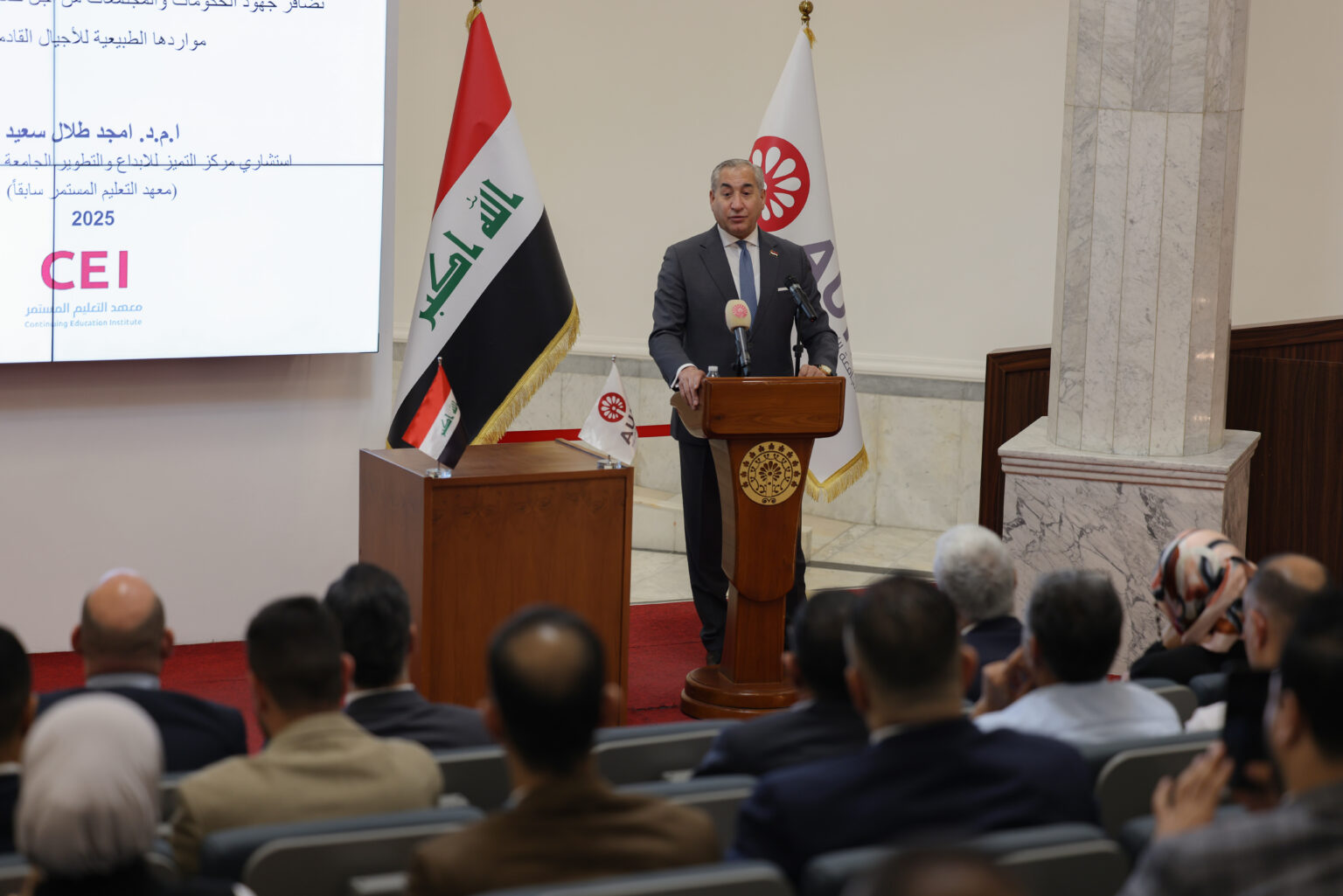The “Center for Excellence, Innovation, and Development_ CEID” (formerly Continuing Education Institute_ CEI) at the American University of Iraq-Baghdad (AUIB) organized a Forum on Carbon Literacy, with an aim to cultivate an understanding of the impact of carbon emissions on climate change, and raising awareness of the importance of reducing the carbon footprint of individuals, households, and organizations alike as a precondition for a “societal partnership” in working towards environmental sustainability and economic development simultaneously.
AUIB’s Vice President for Academic Affairs, Dr. Zouhair Atieh, welcomed the attending guests, among whom were researchers and various parties engaged in the field of environmental sustainability and transition or diversification to green energies, as well as government officials, including Advisor to the Iraqi Prime Minister on entrepreneurship and digital transformation, Dr. Hussein Flamers, and Deputy Minister for Technical Affairs at the Ministry of Environment, Dr. Jassim Al-Falahi, who commended cooperation with AUIB on promoting the concepts of renewable energies and environmental sustainability in Iraq.
“Raising awareness, among ordinary citizens and decision makers alike,” is a precondition for a “societal partnership” in the process of transformation into “a green, sustainable Iraq,” said Dr. Al-Falahi who took a broad approach to this challenge of transformation, starting with the need for post-war reconstruction and economic diversification away from almost complete dependence on the hydrocarbon sector and the fragility it implies, given the volatility of oil prices in international markets, especially against a backdrop of a worldwide trend of transitioning or diversifying towards “green” energies. At the same time, the Deputy Minister saw that minimizing the carbon footprint (of individuals, households, and various institutions) is “not a luxury,” as citizens now directly suffer the impact of climate change in Iraq, which is one of the countries most affected by this phenomenon, especially with the sharp decline in incoming river waters, due to the water policies of upstream countries, serving to exacerbate desertification. Dr. Al-Falahi called for cooperation among all societal actors in efforts at an eco-friendly sustainable development in all sectors, including the agricultural, industrial, tourism and energy sectors, stressing the imperative to invest in human cadre, especially the young, and in “green technologies.”
Consultant at CEID, Dr. Amjad Talal Saeed, gave the audience a presentation on “Environmental Management: Sustainable Governmental Solutions,” where he briefed on ISO certificates in Sustainability and Total Quality Management, and on adherence to relevant standards on part of prominent multinationals, as well as Iraqi companies, among which is the Raban Al-Safina Group. In this context, Dr. Amjad Talal Saeed announced CEID’s launch of the “Carbon Literacy Project” which offers certificate programs in building institutional capacities in the field of sustainability, such as the LEED certification, or the certificate in “Leadership in Energy and Environmental Design,” broadly regarded as an indicator of a facility that is highly efficient in the consumption of energy and water. The CEID Consultant highlighted that the program is accredited by the United Nations.
